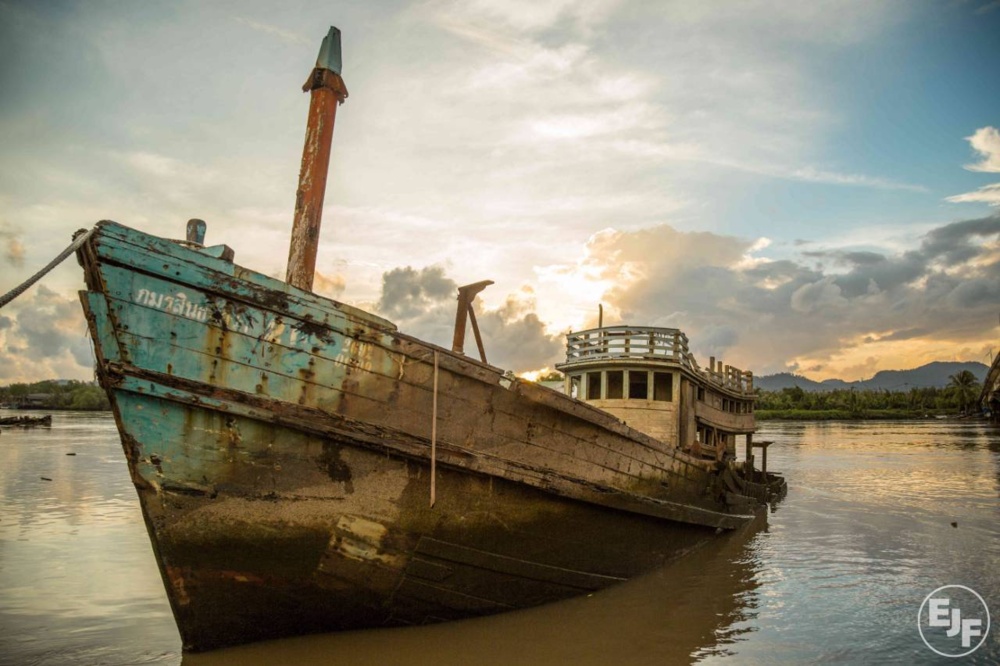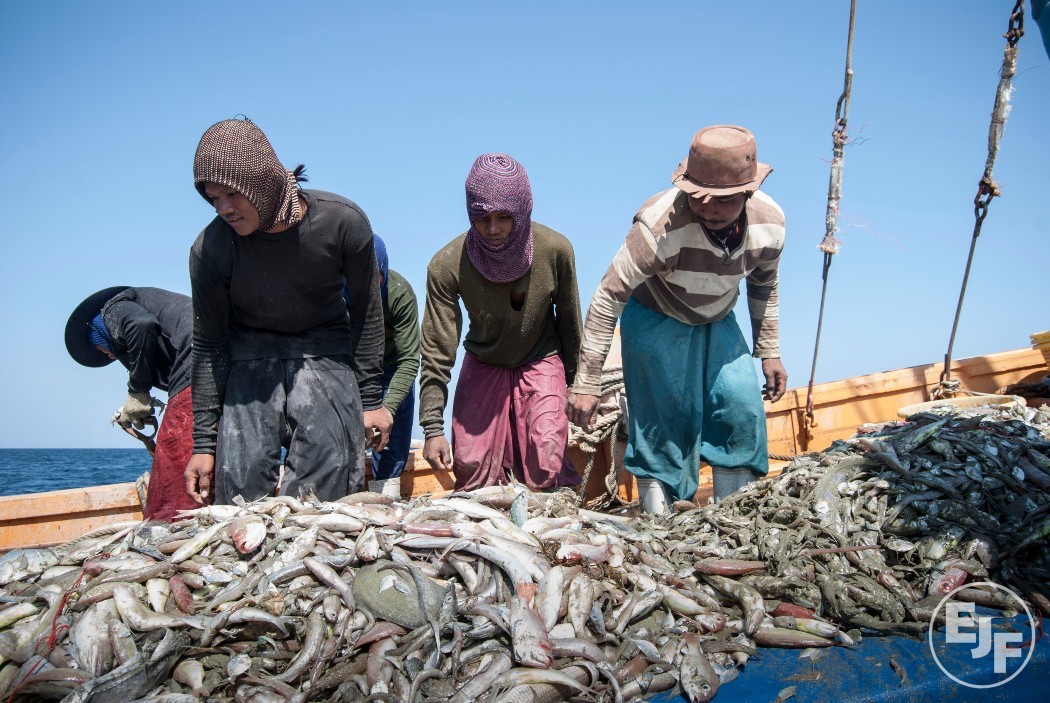
Thai government pledges to protect reforms to keep country free of illegal fishing
Thai Deputy Prime Minister, General Prawit Wongsuwan, committed Thailand to protect and build on recent fisheries reforms during a meeting with the Environmental Justice Foundation’s Executive Director, Steve Trent. Thailand has implemented substantial reforms, designed to eradicate illegal fishing and address human rights abuse at sea, which EJF praised during the meeting. However, in recent months the National Fishing Association of Thailand has been lobbying the government to roll-back many of these progressive measures. This show of renewed political will to protect and strengthen the reforms is a welcome sign, says EJF.
For the past five years, EJF has worked closely with the Royal Thai Government to eradicate the illegal fishing and human rights abuse that has plagued its fishing industry. The country has made significant strides forward, according to EJF.
In 2018, Thailand became the first country in Asia to ratify the International Labour Organization’s convention, which promises protection to the victims of forced labour and sanctions for the perpetrators (P29). This year, it ratified the ILO’s Work in Fishing Convention C188, which sets basic standards of work in the fishing industry, again the first country in Asia to do so. This progress has been recognised by the EU, and the country’s ‘yellow card’ trade warning over illegal fishing was lifted earlier this year.
Thailand’s monitoring, surveillance, and enforcement capabilities have also shown good progress, and a move towards transparency, including making license lists public, have been an important steps.
In recent months, however, concerns have been raised over demands by the National Fisheries Association of Thailand (NFAT) that the government rollback on reforms.
In a closed-door meeting, NFAT demanded that all restrictions on crew and catch transfers at sea be lifted. This would allow abusive vessel owners to swap enslaved migrants between vessels so that they almost never made landfall, with virtually no chance of escape or detection by the authorities. Numerous such cases were documented in Thai fisheries before the current reforms were implemented.
It would also allow operators to launder illegally caught fish between boats so it was no longer traceable, allowing it to make its way into international supply chains undetected.
The message from the meetings with EJF, however, show that the government continues to take a firm stance on driving the reforms forward.
Deputy Prime Minister Gen Prawit Wongsuwan said at the meeting: “Thailand acknowledges the importance of continuing with the reforms and the government will persevere with that to secure marine sustainability and lead the country to become an IUU [illegal, unreported and unregulated fishing] free nation.”
The reforms brought in by the Royal Thai Government have had a clear, important, positive impact on Thailand’s fisheries and the entire region of Southeast Asia. They have been crucial to the country’s economy, fish stocks and international reputation. The clear message that came from my meeting with Deputy Prime Minister Wongsuwan was that the government recognises the importance of these reforms. It is very reassuring to hear that the government is committed to entrenching these reforms to prevent Thailand’s fisheries returning to their dark past.
EJF remains committed to working with the government and all other stakeholders across the fishing and seafood sectors to deliver a sustainable, legal and ethical industry.
SIGN UP FOR OUR EMAILS AND STAY UP TO DATE WITH EJF

